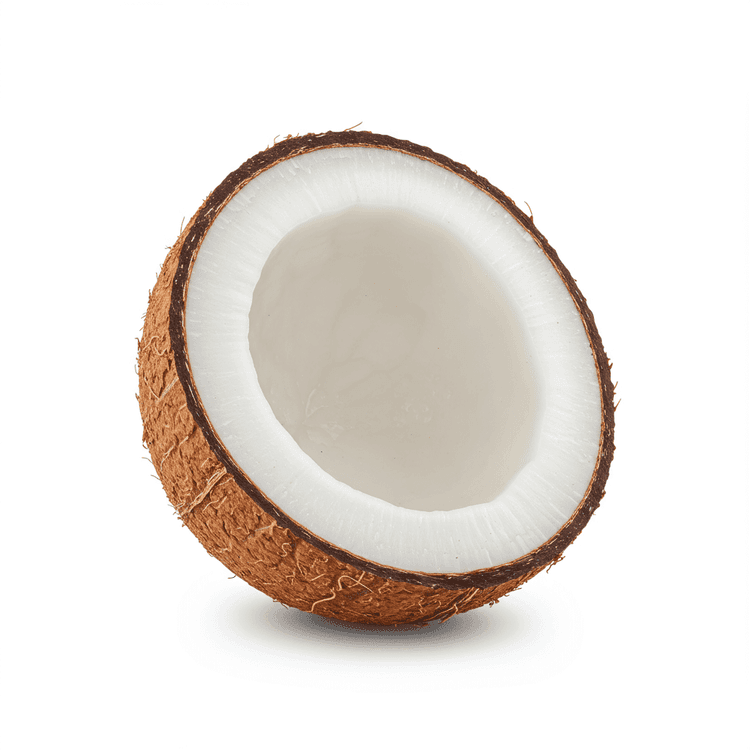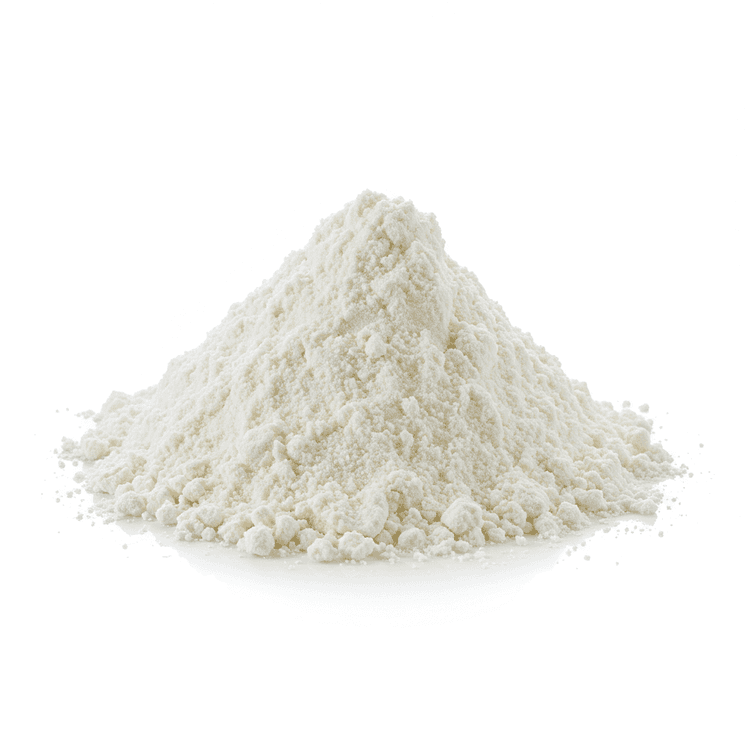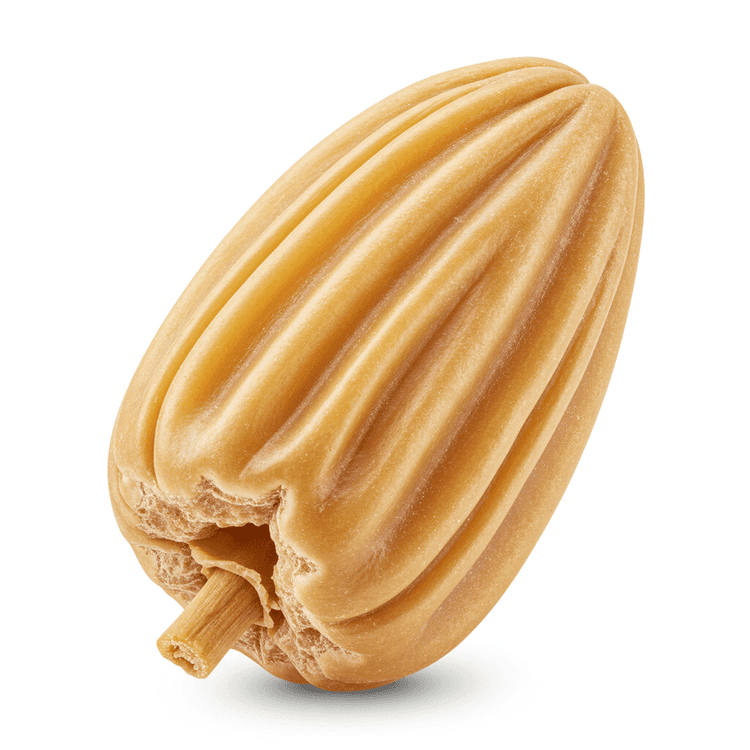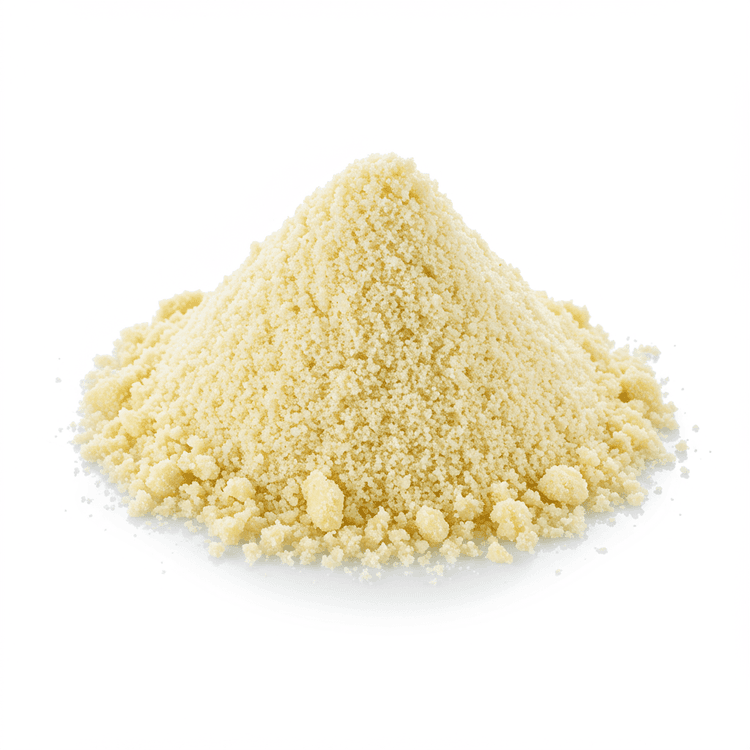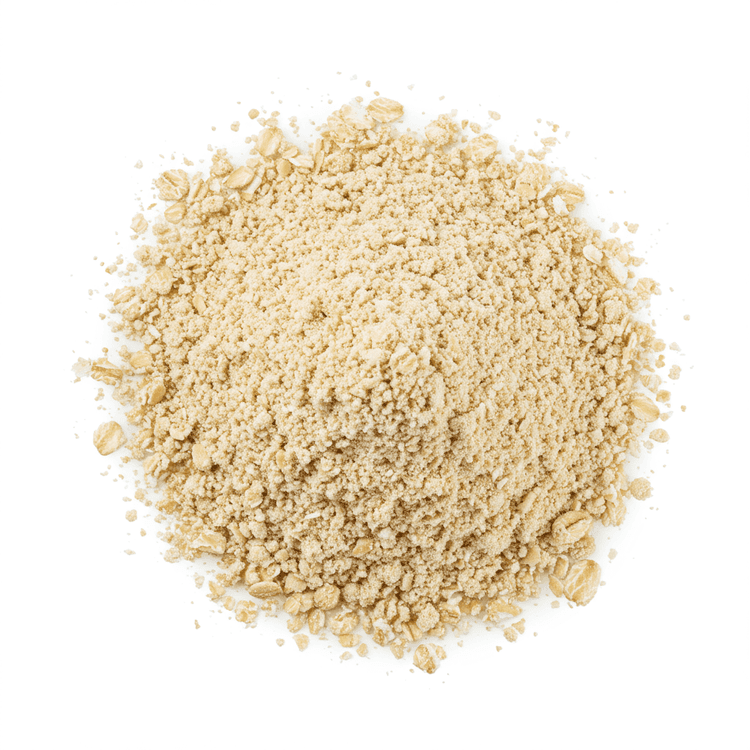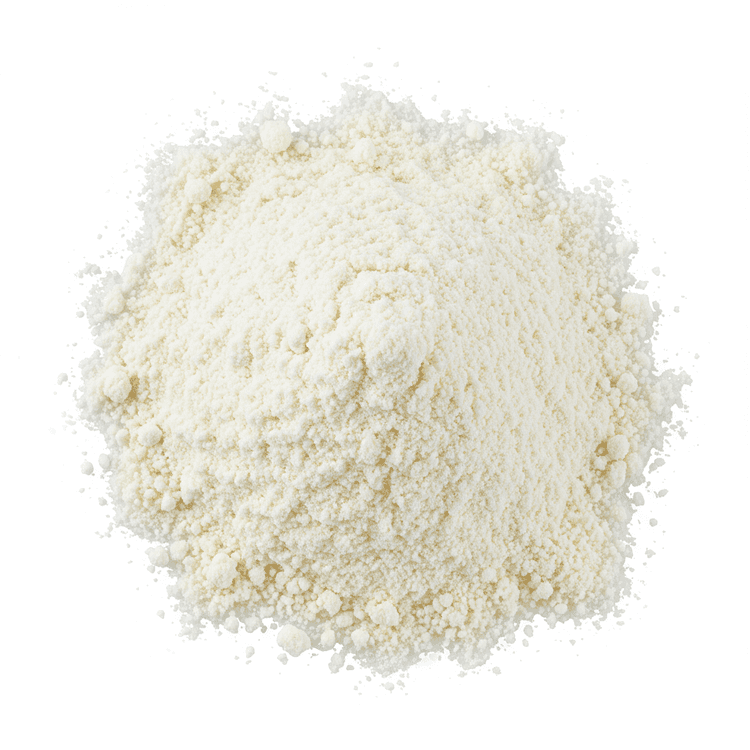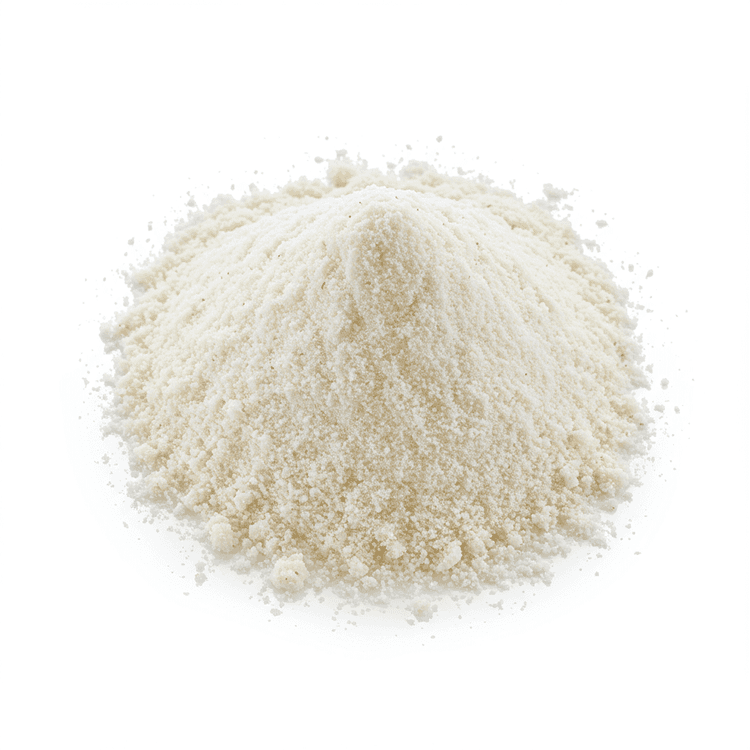
Coconut Flour
Coconut flour is a naturally gluten-free flour made from dried coconut meat that has been finely ground. It boasts a subtly sweet and slightly nutty flavor, making it a popular alternative to wheat flour in baking. Its texture is light and airy, but also absorbent, requiring adjustments to liquid ratios in recipes. Its appearance is typically a creamy off-white color. When searching for healthy, low-carb baking options, coconut flour is a great choice and is often preferred in paleo and gluten-free diets. It's a versatile ingredient for creating delicious, wholesome baked goods.
Common Uses
- Used as a gluten-free flour substitute in breads and cakes, providing a unique flavor profile and delicate crumb.- Used to create healthier pancakes and waffles by replacing some or all of the wheat flour with coconut flour to lower carbs.- Act as a thickening agent for sauces, soups, and stews, contributing both flavor and body.- Used as a coating for meats or vegetables before baking or frying, offering a subtle sweetness and crispy texture.- As a binding agent in veggie burger recipes, it helps hold ingredients together without gluten.- Baked into delicious and healthy cookies and muffins, offering a good source of fiber and a lower glycemic index.
Nutrition (per serving)
Nutrition (per serving)
Calories
120.0kcal (6%)
Protein
4.0g (8%)
Carbs
16.0g (5.82%)
Sugars
2.0g (4%)
Healthy Fat
0.3g
Unhealthy Fat
3.6g
% Daily Value based on a 2000 calorie diet
Nutrition (per serving)
Calories
120.0kcal (6%)
Protein
4.0g (8%)
Carbs
16.0g (5.82%)
Sugars
2.0g (4%)
Healthy Fat
0.3g
Unhealthy Fat
3.6g
% Daily Value based on a 2000 calorie diet
Health Benefits
- Excellent source of dietary fiber, promoting digestive health and regularity.
- Gluten-free alternative, suitable for individuals with celiac disease or gluten sensitivity.
- Low in carbohydrates compared to wheat flour, supporting blood sugar control and weight management.
- Contains healthy saturated fats, potentially beneficial for heart health in moderation.
- Provides a good source of plant-based protein, contributing to muscle building and repair.
- May help lower LDL (bad) cholesterol levels due to its high fiber content.
Chefadora AI is here.
Experience smarter, stress-free cooking.
Storage Tips
Coconut flour should be stored in an airtight container in a cool, dry place away from direct sunlight and heat. Properly stored, it can last for several months at room temperature. To extend its shelf life, you can refrigerate or freeze it, especially in humid climates. Ensure the container is sealed tightly to prevent moisture absorption, which can cause clumping and spoilage.
Marnirni-apinthi Building, Lot Fourteen,
North Terrace, Adelaide, South Australia, 5000
Australia

